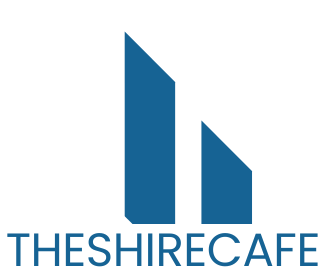Imagine sipping piña coladas on a beach while your mortgage pays itself off. Sounds too good to be true? Enter the world of house hacking and the Financial Independence, Retire Early (FIRE) movement. This dynamic duo isn’t just a clever way to save money; it’s a game-changer for anyone looking to escape the 9-to-5 grind.
Table of Contents
ToggleUnderstanding House Hacking
House hacking offers a unique strategy for individuals pursuing financial independence through the FIRE movement. This approach allows homeowners to reduce housing expenses while generating additional income.
Definition of House Hacking
House hacking involves leveraging a residential property to create income streams, which subsequently offset mortgage costs. This method typically entails renting out extra rooms or converting parts of a home into rental units. Individuals who engage in house hacking effectively lower monthly housing expenses while simultaneously building equity in their properties. Such practices align well with the FIRE philosophy by fostering savings and increasing cash flow.
Types of House Hacking
Various types of house hacking strategies remain popular among homeowners.
- Room Rentals: Renting out individual rooms to long-term tenants generates steady income.
- Airbnb Hosting: Short-term rentals through platforms like Airbnb attract vacationers and travelers.
- Multi-Family Properties: Purchasing duplexes or triplexes allows owners to occupy one unit while renting others.
- Live-in Rehab: Buyers invest in fixer-uppers, live on-site, and complete renovations to increase property value.
- Accessory Dwelling Units (ADUs): Creating separate small units like in-law suites or backyard cottages provides additional rental opportunities.
Understanding these options empowers individuals to choose the most effective method for their goals.
The FIRE Movement
The FIRE movement emphasizes financial independence and early retirement as reachable goals. Individuals involved in this movement aim to reduce expenses, increase savings, and build wealth through various strategies.
What is FIRE?
FIRE stands for Financial Independence, Retire Early. This concept encourages individuals to save aggressively with the goal of retiring significantly earlier than traditional retirement ages. Participants often focus on investing and reducing living costs to accumulate assets efficiently. Through various methods like frugality or side hustles, they can achieve a lifestyle that provides freedom from conventional work.
Key Principles of FIRE
Key principles of FIRE include aggressive saving, frugality, and investment strategies. Saving at least 50% of income can significantly accelerate the path to financial independence. Living below one’s means fosters an environment where wealth can grow. Investment in low-cost index funds and real estate generates passive income. These building blocks create a sustainable financial plan, enabling individuals to retire early and enjoy a life driven by personal passions rather than financial obligations.
Benefits of Combining House Hacking and FIRE
Combining house hacking with the FIRE movement offers numerous advantages that enhance financial wellbeing. Individuals can leverage real estate to significantly bolster their path to financial independence.
Financial Independence
House hacking accelerates the journey toward financial independence by reducing housing costs. Cutting expenses allows individuals to allocate more funds towards savings and investments. Ownership of property creates an opportunity for passive income, which can further support a lifestyle without reliance on traditional nine-to-five jobs. Individuals who house hack often report decreased stress related to financial obligations. Generating income through rental activities provides greater freedom to pursue personal passions and interests.
Accelerated Savings
House hacking enables accelerated savings through additional income streams derived from rental situations. Homeowners can save a substantial portion of their income by lowering monthly housing bills. Utilizing rental income contributes to reaching savings goals faster. Those engaged in house hacking may notice they save more than those with standard housing setups. Implementing this strategy not only fosters financial discipline but also enhances long-term wealth-building potential. Property owners often find they can reinvest savings into diversified portfolios or further real estate ventures.
Challenges to Consider
Engaging in house hacking while following the FIRE movement presents challenges that must be carefully navigated.
Market Risks
Market risks significantly impact the viability of house hacking strategies. Local real estate markets can fluctuate, affecting rental demand and property values. Economic downturns may lead to increased vacancies or lower rental rates, which can hamper income projections. Investors must analyze market trends and local factors before committing to a property. Understanding neighborhood dynamics and future development plans enhances predictive accuracy regarding property performance. Additionally, reliance on a single property for income can create vulnerabilities. Diversifying income sources mitigates potential risks, protecting long-term financial stability.
Property Management Issues
Property management issues often arise during the house hacking process. Maintaining a rental unit requires attention to tenant relations, property upkeep, and compliance with regulations. Poor tenant experiences can lead to vacancies or increased turnover costs. Addressing maintenance concerns promptly is crucial for maintaining property value. Potential landlords should consider the time and effort needed for day-to-day operations before making a decision. Balancing personal space with rental obligations can create tension if not managed effectively. Leveraging professional property management services might alleviate burdens for those lacking experience.
Conclusion
House hacking offers a powerful strategy for those pursuing financial independence and early retirement. By leveraging residential properties to generate income and reduce housing costs, individuals can significantly enhance their financial well-being. This approach not only accelerates the journey toward FIRE but also provides the freedom to invest in personal passions and dreams.
While challenges like market risks and property management exist, the rewards can outweigh the difficulties for those willing to navigate the landscape. Embracing house hacking can transform financial goals into achievable realities, paving the way for a lifestyle filled with leisure and fulfillment.



